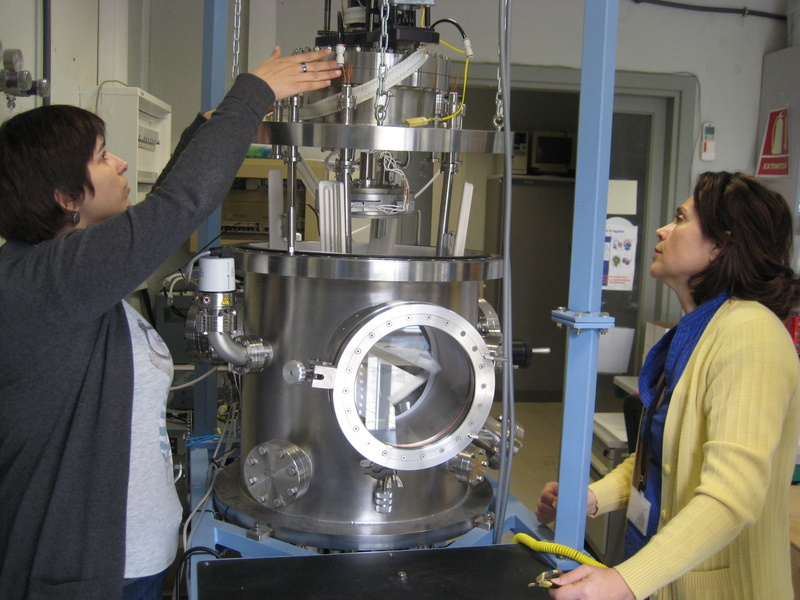The Materials Science Institute of Seville (ICMS), a center belonging to cicCartuja, has been selected by the European Union for the creation of an advanced laboratory for the analysis of functional nanomaterials. The initiative represents an investment of more than two and a half million euros, which will make Seville a European reference center in this area of research.
Nanomaterials are materials with morphological properties smaller than a tenth of a micrometer in at least one dimension. Asunción Fernández, ICMS researcher and head of the project, points out that the Laboratory will be financed through funds from the Capacities section of the European Union’s Seventh Framework Program. A total of 293 proposals were submitted to the call for proposals, of which only 20 were chosen to receive funding, two of them from Spain. Fernández emphasizes that the selection of the ICMS represents a recognition and demonstration of confidence from Europe for the “quality and impact of the research carried out so far, and also takes into account the previous experience of the researchers of this Institute in the area of analytical electron microscopy”.
Fernández highlights the support received from the Junta de Andalucía establishing synergies with the regional convergence funds by providing additional funding of 400,000 euros from the infrastructure program that will complete the equipment of the advanced laboratory. The initial meeting of this project, called AL-NANOFUNC, will be held on Thursday, October 27th at the ICMS, with the participation of scientists from renowned universities such as Oxford and Cambridge in the United Kingdom; Namur in Belgium; Graz in Austria; and the Ernst Ruska Center in Jülich, Germany; EMPA in Dübendorf, Switzerland; i-Nanotech in Rabat, Morocco; and VINF in Brussels, Belgium, as collaborating partners. The funding will not only enable the acquisition of the high-resolution analytical transmission electron microscope, a basic component for the operation of the new facility, but will also allow for a wide range of complementary activities such as the hiring of highly specialized research and technical personnel; the exchange of personnel with centers of excellence in Europe; the organization of workshops and conferences at the European level; and technology transfer and dissemination activities. The meeting will be attended by researchers from Andalusian and European companies that have been collaborating and using the ICMS facilities.
Functional nanomaterials are widely used in strategic sectors, such as, for example, the development of photovoltaic cells, catalysts for sustainable energy industries; the production of protective coatings and thin films for different functions; and the development of sensors and other photonic materials, among others.




